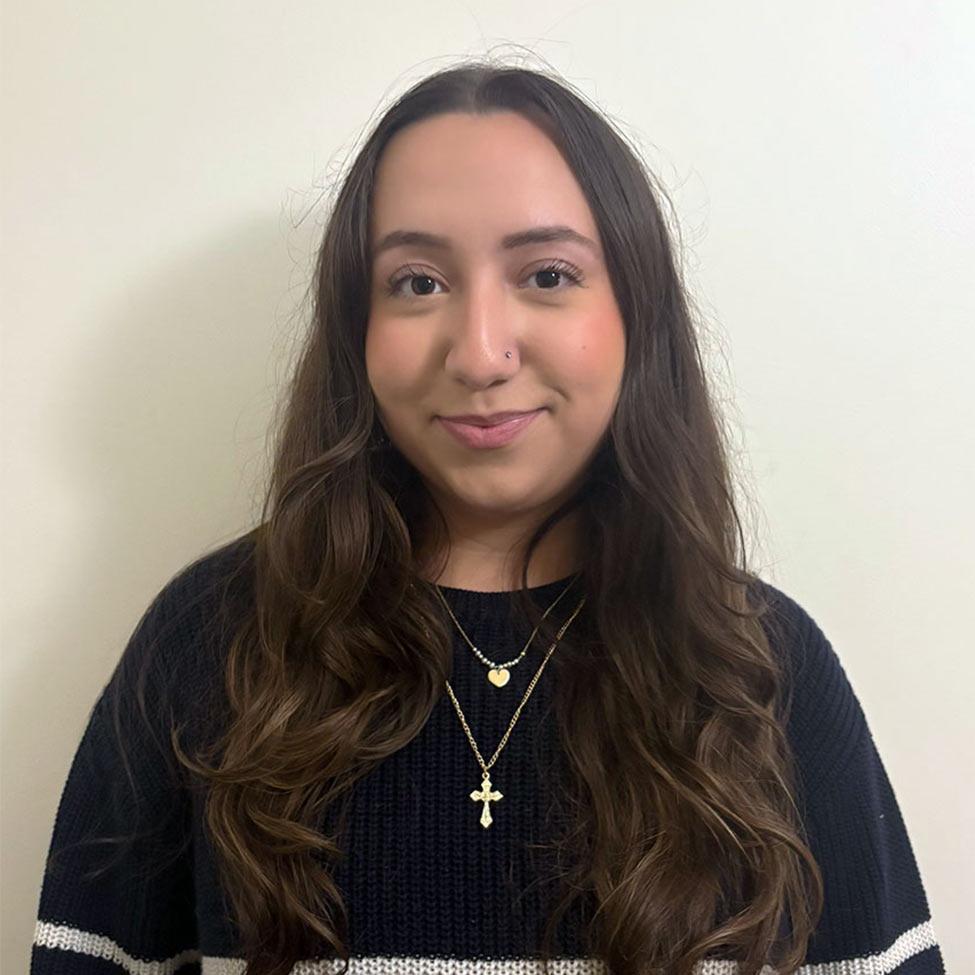
North West Rocks Bold Concert Look After Mom Kim Kardashian Defends Style
Dyson Professor Melvin Williams speaks to USA Today about media coverage of Kim Kardashian’s daughter, North West, and the public response to her appearance. Williams noted that the debate illustrates how celebrity culture often projects adult expectations onto children, observing that “the public often denies their childhood innocence and subjects them to a sexualized gaze.”
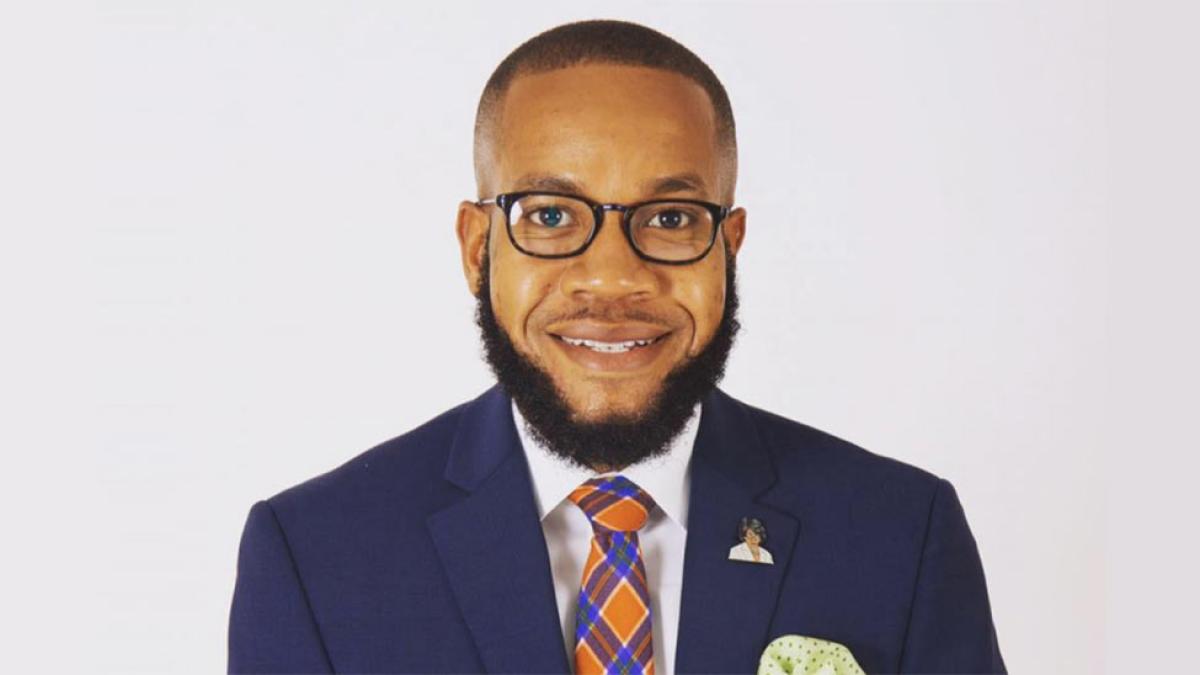
How to Gain Weight the Right Way
In GQ, CHP Professor Christen Cooper emphasized that healthy weight gain requires consistency and realistic expectations. “Americans just want a quick fix,” Cooper said, advising that true progress comes from long-term nutrition, fitness, and lifestyle balance — not shortcuts or supplements.
Mamdani Can’t Fulfill Campaign Promises Alone, But Has ‘Realistic Path’
Dyson Political Science Professor Laura Tamman provides expert commentary to Newsweek analyzing the political feasibility of Zohran Mamdani’s campaign proposals. Professor Tamman noted that while Mamdani faces limits in implementing his platform, his universal child-care initiative has key gubernatorial support — a significant endorsement that could make his agenda viable.
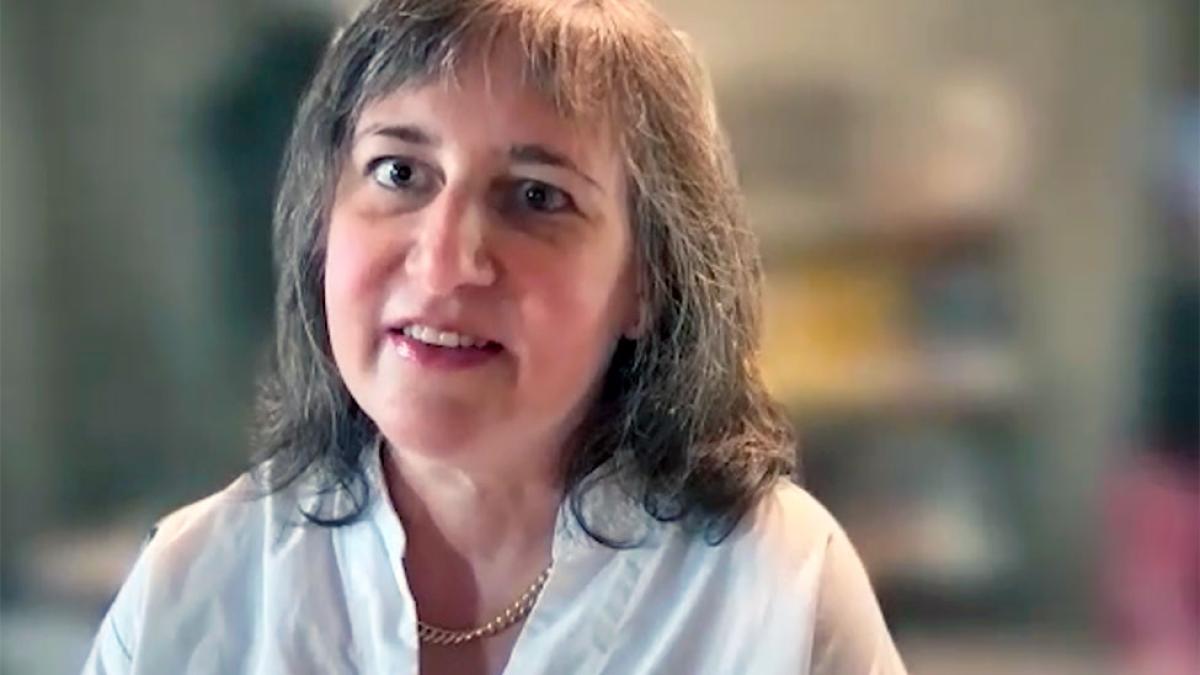
Best Baseball Cities in 2025
In WalletHub’s national feature ranking the best baseball cities in America, Dyson Professor Michelle Pulaski Behling contributed her expertise on community engagement and fan culture, helping contextualize what makes a city’s sports identity thrive beyond simple statistics.
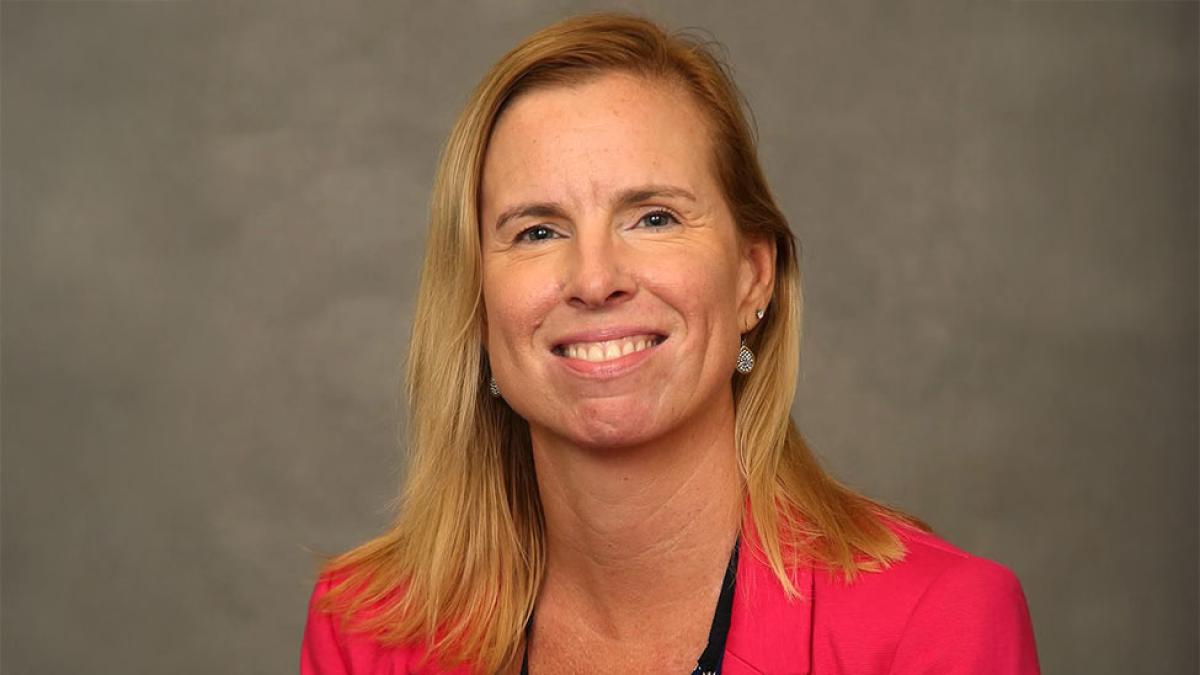
Healing A Broken Mental Health System: Laura Cvek Of Pace University On 5 Things That Can Be Done To Fix Our Broken Mental Health System
CHP Professor Laura Cvek writes a piece in Authority Magazine on Medium outlining five key solutions to strengthen the nation’s mental health system. Drawing from clinical experience, she emphasized empathy, workforce training, accountability, and equitable access as cornerstones of reform.
Exploring How Children Learn: Q+A with Psychology Major Marina Alberto ’28
For Psychology major and Honors College student Marina Alberto ’28, Pace is where passion meets purpose. Through hands-on research on child development, meaningful faculty mentorship, and leadership in the Psi Chi club, she’s exploring how children learn, and how Pace helps students grow.
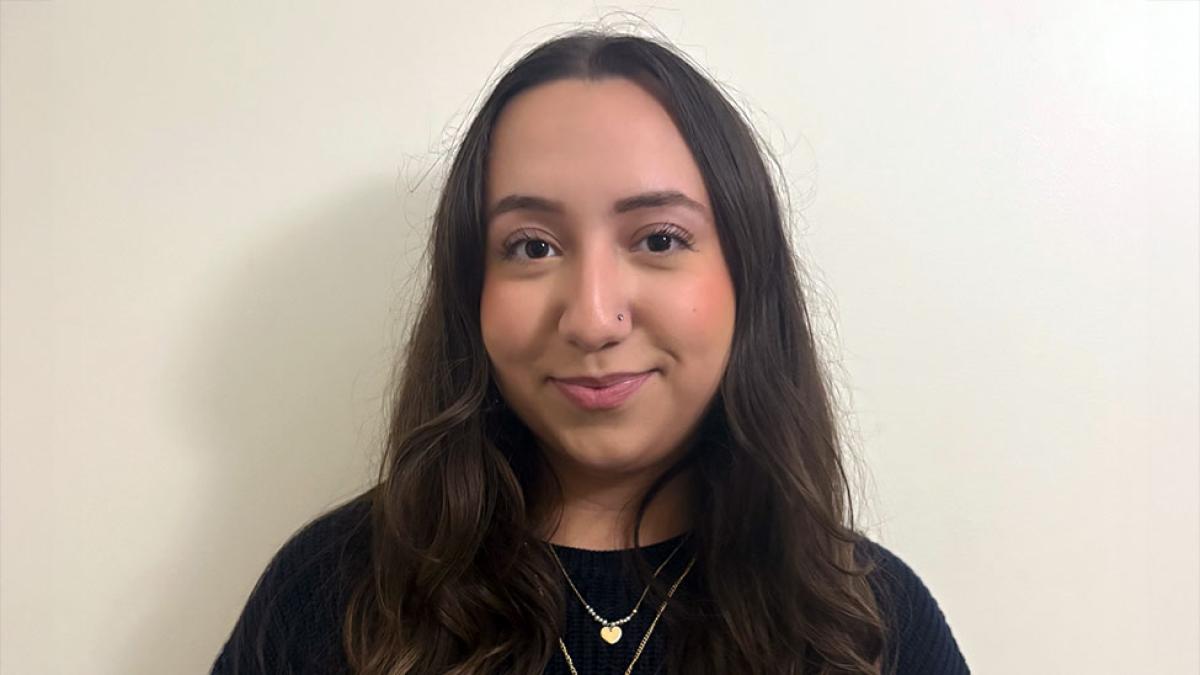

Marina Alberto
Class of 2028
BA in Psychology
Why did you choose to pursue a BA in Psychology?
I chose psychology as a major because I’ve always been interested in learning about the way our brains work and how our experiences and biology can influence how we develop as individuals.
Why did you choose to attend Pace?
Pace’s Honors College, with its many opportunities, was a large factor in my decision, and both the program and its faculty have made me feel very supported and at home here at Pace. In addition, ever since I was little, I had always dreamed of living in New York City. Originally from Long Island, by attending Pace, I was eager to experience living in a new place that was exciting, and yet not too far from home.
I understand that you are working with Associate Professor Brenna Hassinger-Das, PhD, in a research lab at Pace. Tell us more about that experience.
As part of Professor Hassinger-Das’s Science of Development lab, I conduct research with my fellow students to better understand the way children learn and develop, including the underlying factors that may affect that. This fall semester, we will be conducting research at the Staten Island Children’s Museum, helping to run the toy play study with children ranging in age from 18-36 months. I think the work we are doing is very meaningful, especially in today’s ever-changing world with all its challenges. Professor Hassinger-Das has been an absolute pleasure to work with, and I look forward to continuing to learn from her.
I conduct research with my fellow students to better understand the way children learn and develop, including the underlying factors that may affect that. I think the work we are doing is very meaningful, especially in today’s ever-changing world with all its challenges.
What have your experiences been like with the Psychology department and its faculty?
My experiences so far as a sophomore in the Psychology department have been very positive, as there is a lot of support for students. For example, the Counseling Center posts job and internship opportunities for students to consider, as well as information on classes offered that might be of interest–it is all very helpful.
What other activities, if any, are you involved in at Pace and how are they meaningful to you?
I am currently involved in the Psi Chi/Psychology club as the vice president. This has been an incredible opportunity for me to gain leadership experience and build upon my knowledge of psychology, but also to be introduced to so many amazing people that share similar interests.
What would you like to do upon graduation/what are your career goals?
Upon graduating Pace, I hope to attend graduate school or another program that will lead me in the direction of working in school psychology or with children in therapy.
What advice would you like to give to current students?
Get involved and put yourself out there. It can lead you to some amazing experiences that you would otherwise never have had.
Six Types of Nursing Degrees Explained
Learn about the different levels of nursing degrees, including their requirements and responsibilities.


Nurses play a fundamental role in our healthcare system, making up the largest segment of the healthcare workforce and providing critical care to our families and communities. This means we need as many qualified and passionate professionals as possible, as multiple studies show that we’re facing a nursing shortage. The International Council of Nurses considers this shortage to be a global health crisis as our healthcare systems continue to recover and rebuild from the impact of the COVID-19 pandemic.
If you’re looking into a career in nursing, you have a wealth of opportunities to consider. However, if you’re not familiar with the different types of nursing degrees and what they offer, or various acronyms and verbiage, then it can be challenging to wrap your head around.
That’s why it’s important to explore the programs and opportunities that different programs offer. Our own College of Health Professions offers three different master’s degree programs for nurse practitioners: adult-gerontology acute care, psychiatric mental health, and family practice. That’s in addition to AGACNP, PMHNP, FNP, and nursing education certificates of advanced graduate studies as well as a Doctor of Nursing Practice (DNP) and a PhD in nursing.
Learn More
Explore the top-rated programs, state-of-the-art resources, and clinical focused learning opportunities of the Lienhard School of Nursing.
Here’s what you need to know to understand the different levels and types of nursing degrees and—more importantly—how they can prepare you for your future career.
Levels of Nursing Degrees
There are three levels of education within the nursing field: non-degree, degree, and advanced degree. Non-degree positions still require certification and are suited toward entry-level positions. Higher degree levels require additional certifications and will qualify you for advanced specializations or leadership positions.
Non-Degree Nurses
Non-degree nursing roles include Certified Nursing Assistants (CNAs) and Licensed Practical Nurses (LPNs), who complete specialized training programs that do not result in a college degree. These roles are meant to open pathways into the nursing field, offering a foundational entry point for those interested in healthcare.
Becoming a CNA or LPN typically requires a high school diploma or equivalent. CNAs must pass a competency exam to achieve certification, while LPNs are required to pass the National Council Licensure Examination for Registered Nurses NCLEX-PN exam to obtain licensure.
Non-degree positions focus on providing basic patient care in a range of healthcare settings, including assisting with daily living activities, monitoring vital signs, and helping patients with mobility. Both CNA and LPN are lower salary positions, though they do offer valuable hands-on experience which can serve as a stepping stone for those who may later pursue advanced nursing education and licensure.
Degree Nurses
Degree nursing roles require an undergraduate degree in the field, such as an Associate of Science in Nursing (ASN) or a Bachelor of Science in Nursing (BSN). Either degree is required to become a registered nurse (RN).
- Requirements: Both ASN and BSN programs prepare students to take the NCLEX-RN exam, which is necessary to become a licensed RN. RNs are the first line of care in many healthcare settings, and many employers prefer or even require a BSN as an educational standard.
New York is—currently—the only U.S. state that has passed a law requiring RNs to obtain a BSN degree or advanced nursing degree within 10 years of licensure.
- Responsibilities: RNs play an essential role in assessing, monitoring, and treating patients as well as supervising the work of CNAs and LPNs. They also educate patients and their families about medical conditions, treatment plans, and health maintenance and provide emotional support and guidance.
- Work Environments: RNs with ASN or BSN degrees have numerous career opportunities in multiple healthcare environments, including hospitals, outpatient facilities, schools, home health care, community health organizations, and even non-clinical roles in education, administration, or research.
Advanced Degree Nurses
Nurses who pursue advanced degrees in nursing, such as a Master of Science in Nursing (MSN), Doctor of Nursing Practice (DNP), or Doctor of Philosophy in Nursing (PhD) take on specialized roles in the healthcare industry. These advanced qualifications lead to increased responsibilities, broader career opportunities, and the potential for leadership roles, including independent practice in certain states.
- Requirements: Advanced degree nurses must be licensed as RNs and must pass national certification exams in their area of specialization. State regulations may also require additional certifications or completion of clinical practice hours.
An MSN typically takes two to three years to complete and covers advanced clinical skills, healthcare policy, and specialized nursing roles. Both the PhD and DNP are terminal degrees, but they differ in focus: the PhD emphasizes research, while the DNP is practice-oriented. These programs generally take two to six years to complete, depending on if you enroll after earning your MS or BS degree. - Responsibilities: Nurses with advanced degrees have a much broader scope of practice than RNs, with specific responsibilities differing based on their area of specialization. Earning an advanced degree can qualify you for the advanced practice registered nurse (APRN) positions, which include certified registered nurse anesthetist (CRNA), certified nurse-midwife (CNM), clinical nurse specialist (CNS), and certified nurse practitioner (CNP).
- Work Environments: Advanced degree nurses have the flexibility to work in various settings, such as hospitals, clinics, outpatient facilities, private practices, and—in some states—even their own practice. Additionally, they can pursue careers in leadership, education, research, policy development, and administration.
Advanced degrees prepare you for different specialties, such as nurse practitioner, nurse researcher, nurse educator, or nurse leadership and administration.
Types of Nursing Degrees
Which degree would work best for your nursing career? That depends entirely on the type of care you want to provide, the places you want to work, and your overall career aspirations. Here’s an overview of six different types of nursing degrees, from the CNA up through the terminal PhD and DNP degrees.
Certified Nursing Assistant (CNA) certificate
The Certified Nursing Assistant (CNA) certificate prepares you to provide basic patient care and support under the supervision of RNs or LPNs. The program typically covers essential skills such as taking vital signs, assisting with daily activities, and ensuring patient comfort and safety. It combines classroom instruction with hands-on clinical experience, equipping students with the skills needed for entry-level roles in various healthcare settings. Upon completion, you’ll need to pass a state certification exam to become a licensed CNA.
The CNA certification offers a pathway to a healthcare career with opportunities for further advancement.
Educational prerequisites
| What you’ll experience
|
Average time to completion
| Average program cost
|
Potential nursing careers and salaries
| |
Educational prerequisites
- High school diploma or GED
- Criminal background check
What you’ll experience
- Basic nursing skills, anatomy, patient care, infection control, and ethics
- Hands-on experience in a healthcare facility, often totaling 16 to 40 hours
Average time to completion
- 4 to 12 weeks, depending on the program and whether it is full-time or part-time
- Passing your state’s certification exam, which includes both written and practical sections
Average program cost
- $600 to $3,000, depending on the location, school, and program type
- Exam fees vary from state to state, but average around $100
Potential nursing careers and salaries
- Nursing Assistant or Certified Nursing Assistant (CNA):
- National Salary Range: $40,000 to $56,000
- NY Metro Salary Range: $45,000 to $60,000
- Home Health Aide (HHA):
- National Salary Range: $33,000 to $45,000
- NY Metro Salary Range: $39,000 to $51,000
- Patient Care Technician (PCT):
- National Salary Range: $38,000 to $53,000
- NY Metro Salary Range: $44,000 to $59,000
Associate Degree in Nursing (ADN)
The Associate Degree in Nursing (ADN) will provide you with the foundational education and clinical training needed to become an RN. The program typically takes two to three years to complete and covers essential topics such as patient care, anatomy, and pharmacology. ADN programs combine classroom instruction with hands-on clinical experience to prepare graduates for entry-level nursing roles in various healthcare settings. After completing the degree, you’ll need to pass the NCLEX-RN exam to obtain RN licensure.
The ADN degree offers a cost-effective and direct path to an RN career, though you’ll need to earn a more advanced degree to qualify for higher-level nursing positions.
Educational prerequisites
| What you’ll experience
|
Average time to completion
| Average program cost*
|
Potential nursing careers and salaries
| |
Educational prerequisites
- High school diploma or GED
- Prerequisite courses in basic science and general education, such as mathematics, biology, anatomy and physiology, or chemistry
- Entrance exams such as the Test of Essential Academic Skills (TEAS) or HESI A2
- Health compliance requirements, which can include a health assessment, immunizations, basic life support (BLS) certification, criminal background check, and drug screening
What you’ll experience
- Nursing fundamentals, pharmacology, health assessments, and psychology, and gerontology
- Hands-on training in healthcare settings such as hospitals and long-term care facilities
Average time to completion
- 2 to 3 years to complete, depending on whether you are attending full-time or part-time
- Passing the NCLEX-RN exam
Average program cost for two year programs*
- Public Institute: $11,953
- Private Institute: $28,792
Potential nursing careers and salaries
- Registered Nurse (RN):
- National Salary Range: $83,000 to $119,000
- NY Metro Salary Range: $92,000 to $131,000
- Charge Nurse
- National Salary Range: $92,000 to $131,000
- NY Metro Salary Range: $93,000 to $133,000
- Home Health Nurse:
- National Salary Range: $83,000 to $112,000
- NY Metro Salary Range: $103,000 to $151,000
* Estimated costs sourced from the National Center for Education Statistics
Bachelor of Science in Nursing (BSN)
The Bachelor of Science in Nursing (BSN) degree provides you with comprehensive training in nursing practice, leadership, and healthcare management. These four-year programs include coursework in general core requirements as well as major areas like pathophysiology, patient care, medical-surgical nursing, and health promotion, along with extensive clinical experience in diverse healthcare settings.
There are also accelerated bachelor’s of science in nursing programs that can be completed within just 11 months. Created for non-nurse college graduates (US bachelor’s degree or its equivalent) who wish to study nursing in a first professional degree program, accelerated programs require fewer credits to graduate but have specific pre-requisites for admission.
Earning your BSN will prepare you for a wide range of nursing roles, from bedside care to management positions. Graduates are eligible to take the NCLEX-RN exam to become licensed registered nurses.
Did You Know? Pace also offers an Accelerated BSN.
The BSN is the preferred entry-level nursing degree for many hospitals and healthcare facilities and can be a prerequisite for advanced nursing degrees.
Educational prerequisites
| What you’ll experience
|
Average time to completion
| Average program cost
|
Potential nursing careers and salaries
| |
Educational prerequisites
- High school diploma or GED
- Prerequisite courses in basic science and general education, such as mathematics, biology, anatomy and physiology, or chemistry
- Entrance exams such as the Test of Essential Academic Skills (TEAS) or HESI A2
- Health compliance requirements, which can include a health assessment, immunizations, basic life support (BLS) certification, criminal background check, and drug screening
What you’ll experience
- General education and nursing core courses such as pathophysiology, pharmacology, mental health nursing, maternal-child nursing, and medical-surgical nursing
- Hands-on experience in hospitals, clinics, and community settings, covering different nursing specialties like pediatrics, geriatrics, and emergency care
Average time to completion
- Typically takes 4 years to complete, depending on full-time or part-time enrollment
- Passing the NCLEX-RN exam
Average program cost
- Public Universities (In-State): $40,000 - $80,000
- Public Universities (Out-of-State): $80,000 - $120,000
- Private Universities: $70,000 - $150,000+
Potential nursing careers and salaries
- Registered Nurse (RN):
- National Salary Range: $83,000 to $119,000
- NY Metro Salary Range: $92,000 to $131,000
- Nurse Manager:
- National Salary Range: $102,000 to $151,000
- NY Metro Salary Range: $115,000 to $169,000
- Public Health Nurse:
- National Salary Range: $75,000 to $102,000
- NY Metro Salary Range: $88,000 to $123,000
- Nurse Educator:
- National Salary Range: $96,000 to $139,000
- NY Metro Salary Range: $107,000 to $152,000
Master of Science in Nursing (MSN)
The Master of Science in Nursing (MSN) degree program provides you with advanced training in specialized nursing practice, leadership, and healthcare management. Typically completed in two years, the program includes coursework in areas such as advanced clinical skills, healthcare policy, and research, along with opportunities for hands-on clinical experience. An MSN is essential for higher-level roles such as advanced practice registered nurse (APRN), nurse educator, or healthcare administrator, equipping nursing professionals to take on greater responsibilities and leadership positions. Graduates may also qualify for national certification exams in specialized areas of nursing.
The MSN degree is required for further career advancement opportunities, such as becoming an NP or choosing a specialty in areas such as public health, anesthesiology, psychiatric mental health, family practice, or adult-gerontology acute care.
Educational prerequisites
| What you’ll experience
|
Average time to completion
| Average program cost
|
Potential nursing careers and salaries
| |
Educational prerequisites
- A BSN degree from an accredited program; or an associate’s degree in nursing (ADN) for an RN-to-MSN program
- An active and unencumbered RN license
- 1 to 2 years of clinical nursing experience
- Some MSN programs may require GRE scores
- Professional and academic references
What you’ll experience
- Clinical practice and specialty courses, such as advanced pharmacology, pathophysiology, nursing research, health policy, family practice, and leadership
- 500-1,000 clinical hours, depending on specialization
Average time to completion
- 1.5 to 3 years to complete, depending on full-time or part-time attendance
- 3 to 4 years for RN-to-MSN programs
Average program cost
- Public Universities (In-State): $20,000 to $60,000
- Public Universities (Out-of-State): $30,000 to $90,000
- Private Universities: $60,000 to $120,000+
Potential nursing careers and salaries
- Nurse Practitioner (NP):
- National Salary Range: $132,000 to $206,000
- NY Metro Salary Range: $146,000 to $216,000
- Clinical Nurse Specialist (CNS):
- National Salary Range: $99,000 to $150,000
- NY Metro Salary Range: $110,000 to $162,000
- Nurse Administrator:
- National Salary Range: $93,000 to $141,000
- NY Metro Salary Range: $110,000 to $165,000
- Nurse Midwife (CNM):
- National Salary Range: $115,000 to $178,000
- NY Metro Salary Range: $122,000 to $183,000
- Nurse Anesthetist (CRNA):
- National Salary Range: $194,000 to $362,000
- NY Metro Salary Range: $244,000 to $453,000
Doctor of Nursing Practice (DNP)
The Doctor of Nursing Practice (DNP) degree is a terminal program for nursing focused on clinical practice, leadership, and healthcare system improvements. Typically completed in two to six years, the program prepares you for the highest levels of patient care and leadership roles with courses emphasizing advanced clinical skills, evidence-based practice, and healthcare policy. As a DNP graduate, you’ll be equipped to implement and influence healthcare innovations, manage complex health issues, and lead organizational change.
The DNP degree qualifies you for the highest level of clinical practice and leadership roles in healthcare organizations, public health, and policy development and may include eligibility for national certification.
Educational prerequisites
| What you’ll experience
|
Average time to completion
| Average program cost
|
Potential nursing careers and salaries
| |
Educational prerequisites
- Master of Science in Nursing (MSN); or a BSN for a BSN-to-DNP program
- Active and unencumbered RN license
- 1-2 years of clinical nursing experience
- Prerequisite courses, such as statistics or research methods
- GRE scores (optional)
- Professional references and a personal statement
What you’ll experience
- Advanced clinical practice courses such as advanced pathophysiology, pharmacology, and patient management; leadership courses such as healthcare policy, healthcare systems, organizational leadership, and evidence-based practice
- 1,000 or more clinical hours for completion
- A capstone project
Average time to completion
- 1.5 to 3 years to complete, depending on full-time or part-time attendance
- BSN-to-DNP programs usually take 3 to 4 years to complete
Average program cost
- Public Universities (In-State): $30,000 to $70,000
- Public Universities (Out-of-State): $60,000 to $120,000
- Private Universities: $80,000 to $150,000+
Potential nursing careers and salaries
- Any of the MSN job titles
- Nurse Executive/Chief Nursing Officer (CNO):
- National Salary Range: $131,000 to $213,000
- NY Metro Salary Range: $157,000 to $250,000
- Healthcare Administrator/Director of Nursing:
- National Salary Range: $93,000 to $131,000
- NY Metro Salary Range: $116,000 to $162,000
- Public Health Director:
- National Salary Range: $106,000 to $194,000
- NY Metro Salary Range: $165,000 to $186,000
Doctor of Philosophy (PhD) in Nursing
The Doctor of Philosophy (PhD) in Nursing is a research-focused terminal degree that prepares you for careers in academia, research, and healthcare leadership. The program emphasizes the development of new nursing knowledge, research methodologies, and theoretical foundations in healthcare. These programs typically take three to six years to complete and train graduates to conduct high-impact research, influence healthcare policy, and contribute to the advancement of nursing science.
This degree is ideal for those aiming to shape the future of nursing through research and scholarly contributions and is the preferred degree if you want to become an educator, researcher, or leader in healthcare organizations.
Educational prerequisites
| What you’ll experience
|
Average time to completion
| Average program cost
|
Potential nursing careers and salaries
| |
Educational prerequisites
- Master of Science in Nursing (MSN); or a BSN for a BSN-to-PhD program
- Active and unencumbered RN license
- Clinical or academic nursing experience may be preferred
- GRE scores (optional)
- Professional references and a personal statement
What you’ll experience
- Courses in nursing theory, advanced research methods, healthcare policy, and leadership
- A strong emphasis on statistical analysis, qualitative and quantitative research methods, and data interpretation
- Writing, defending, and implementing a dissertation
Average time to completion
- 3 to 5 years to complete, depending on full-time or part-time attendance
- BSN-to-PhD programs can take 4 to 6 years
Average program cost
- Public Universities (In-State): $30,000 to $60,000
- Public Universities (Out-of-State): $50,000 to $90,000
- Private Universities: $80,000 to $120,000+
Potential nursing careers and salaries
- Nursing Faculty/Professor:
- National Salary Range: $95,000 to $141,000
- NY Metro Salary Range: $104,000 to $152,000
- Nurse Researcher:
- National Salary Range: $65,000 to $121,000
- NY Metro Salary Range: $99,000 to $140,000
- Director of Nursing:
- National Salary Range: $93,000 to $131,000
- NY Metro Salary Range: $116,000 to $162,000
- Healthcare Policy Analyst:
- National Salary Range: $87,000 to $162,000
- NY Metro Salary Range: $88,000 to $161,000
Your Nursing Career Awaits
When deciding which level of nursing is right for you, consider the type of patient care you want to provide and your short- and long-term career goals. If you aim to become an advanced practice registered nurse (APRN), you’ll need to pursue an advanced degree that aligns with your chosen specialty.
Choose a program that emphasizes early hands-on experience, allowing you to explore different healthcare settings and gain valuable insights into your future career. This experiential learning is central to Pace's educational approach, which is why our direct admission nursing programs enable you to begin clinical training as soon as possible.
The Lienhard School of Nursing, part of the College of Health Professions, partners with top hospitals and healthcare organizations in New York to provide clinical placements. As a student, you’ll gain high-quality experience at renowned institutions, such as NewYork-Presbyterian Hospital, The Mount Sinai Medical Center, Montefiore Medical Center, NYU Langone Medical Center, and more.
Much of my nursing education has been completed at Pace because of the tremendous faculty. I was supported through various challenges while simultaneously working and engaged in military training during my DNP program. I felt heard, inspired, and supported as I continued to advance my education and nursing practice.
—Mary Riddle ’24, ’16, ’13, DNP
Our NCLEX-RN pass rates consistently exceed state and national averages, and our nursing program ranks in the top 10 in the New York region and the top 10 percent nationally. Explore our undergraduate and graduate programs to discover the program that best suits your passion and career goals.
Being a graduate of Pace University makes me feel ready and prepared to face upcoming opportunities and challenges. My gratitude goes to the entire Pace Community, especially to my educators for their excellent mentorship and for helping me reach my goals.
—Heidi Cruz Eustaquio ’21, Bachelor of Science in Nursing (RN4)
If you have any questions about our programs or the Pace experience, you can always reach out directly for more information.
Press Release: Pace University to Launch Bachelor of Science in Artificial Intelligence in Fall 2026
Pace University is expanding its growing portfolio of tech-focused programs with the launch of a new bachelor of science in artificial intelligence (AI), set to begin in fall 2026. The degree will be offered through the Seidenberg School of Computer Science and Information Systems.


First school in Westchester County to offer a dedicated undergraduate AI degree
Pace University is expanding its growing portfolio of tech-focused programs with the launch of a new bachelor of science in artificial intelligence (AI), set to begin in fall 2026. The degree will be offered through the Seidenberg School of Computer Science and Information Systems.
The program will equip students with critical skills in machine learning, large language models, natural language processing, data analysis and AI ethics. Students will gain hands-on experience through research projects, industry partnerships and experiential learning opportunities that connect them to New York’s tech ecosystem.
“Artificial intelligence is transforming every sector of society,” said Li-Chiou Chen, Ph.D., interim dean of the Seidenberg School of Computer Science and Information Systems. “This new undergraduate program reflects Pace’s vision for innovation and impact while giving students the practical tools and ethical grounding to shape the future responsibly.”
The program also responds to workforce demands. According to the U.S. Bureau of Labor Statistics, employment in tech occupations is projected to grow by 11.7 percent between 2023 and 2033—nearly three times the average for all occupations. Roles such as software developers and database architects, which are foundational to AI infrastructure, are expected to grow by 17.9 percent and 10.8 percent, respectively. As AI technologies become integrated across industries, the need for skilled and ethical AI professionals is expected to increase significantly.
“The launch of this degree reflects Pace University’s mission to prepare students for the careers of the future,” said Jonathan H. Hill, DPS, interim provost and executive vice president for academic affairs. “We are not only developing industry-ready graduates—we are also building leaders who will shape how AI is implemented, understood and governed.”
The new bachelor’s degree joins Seidenberg’s suite of offerings in computer science, cybersecurity, data science and now artificial intelligence, positioning the school as a regional and national leader in STEM education. With its dual-campus footprint in New York City and Westchester, Seidenberg gives students access to a wide range of employers—from global tech companies to local startups—and personalized support through faculty mentorship and project-based learning.
The program builds upon Pace’s long-standing leadership in AI research, experiential learning and interdisciplinary innovation. It complements the university’s AI Lab—opened in 2024 in the newly constructed 15 Beekman building in Lower Manhattan—and its two graduate programs in artificial intelligence. The first, the Master of Science in Artificial Intelligence, places a strong emphasis on theory and the development of AI applications. The second, the Master of Science in Applied Artificial Intelligence, provides students with hands-on training in how AI can be used to solve real-world challenges in business and other sectors. Together with the new undergraduate offering, these programs reflect a comprehensive and future-focused approach to AI education at Pace.
“As program co-designer and co-director of the AI Lab, I’ve seen firsthand the growing interest and need for AI education at every level,” said Christelle Scharff, Ph.D., professor and director of the Artificial Intelligence Lab at the Seidenberg School of Computer Science and Information Systems. “This new bachelor’s degree will provide students with a strong foundation in both the theory and application of AI and empower them to lead in a world increasingly shaped by intelligent technologies.”
About Pace University
Since 1906, Pace University has been transforming the lives of its diverse students—academically, professionally, and socioeconomically. With campuses in New York City and Westchester County, Pace offers bachelor, master, and doctoral degree programs to 13,600 students in its College of Health Professions, Dyson College of Arts and Sciences, Elisabeth Haub School of Law, Lubin School of Business, Sands College of Performing Arts, School of Education, and Seidenberg School of Computer Science and Information Systems.
About the Seidenberg School of Computer Science and Information Systems at Pace University
The Seidenberg School of Computer Science and Information Systems at Pace University is a leading institute of technology education. Students experience a dynamic and expansive technology education at the undergraduate and graduate levels. One of the first comprehensive schools of computing in the nation, the Seidenberg School is strategically located in the heart of NYC’s tech scene, right on the doorstep of New York’s most promising companies. With access to established tech giants and exciting new start-ups from both the New York City and the Westchester campus, Seidenberg offers the opportunity to connect, intern with, and enjoy lucrative tech jobs following graduation. Through partnerships with leading tech firms, banks, federal agencies, and global institutions, the school’s curricula and programs are designed to ground students in the fundamentals while offering numerous hands-on experiential learning opportunity. The faculty includes numerous experts in artificial intelligence, cybersecurity, data science, game development, software engineering, and much more, who operate labs and centers providing students with practical experience and connections that lead to impressive internships and jobs.
Charting a Future in Accounting
From student org leadership to internships in Washington, D.C., and NYC, this Lubin student shares how Pace’s real-world learning and supportive community are helping shape a future CPA—one opportunity at a time.
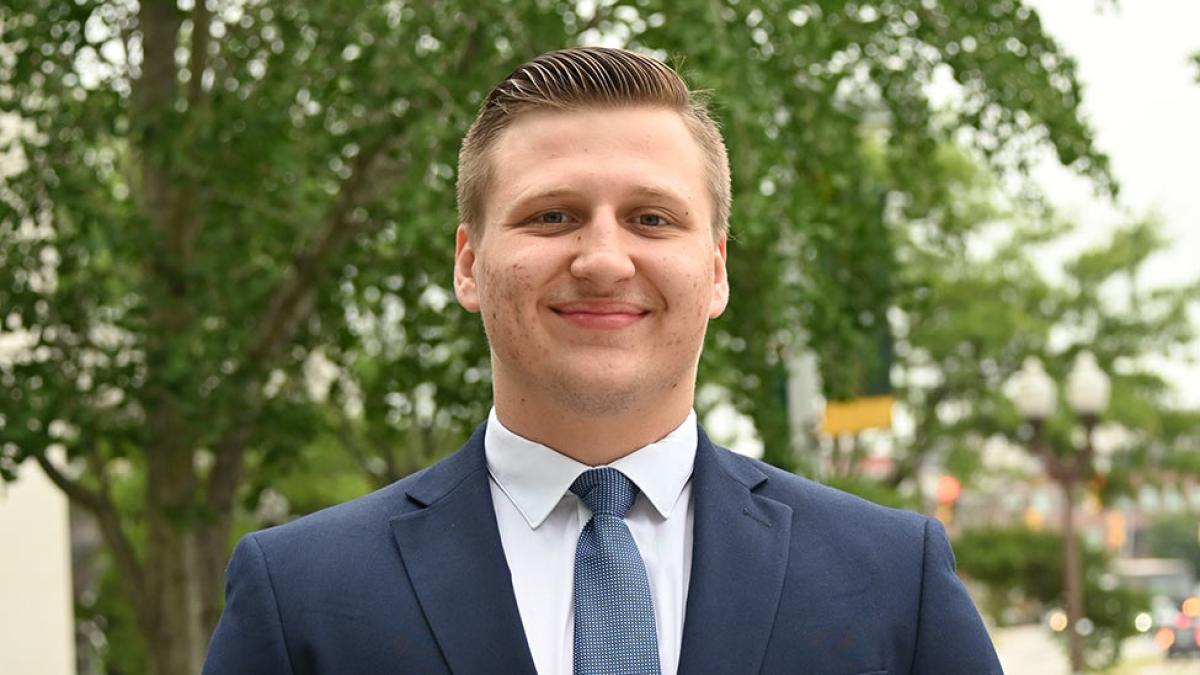
Adrian Brzozowski
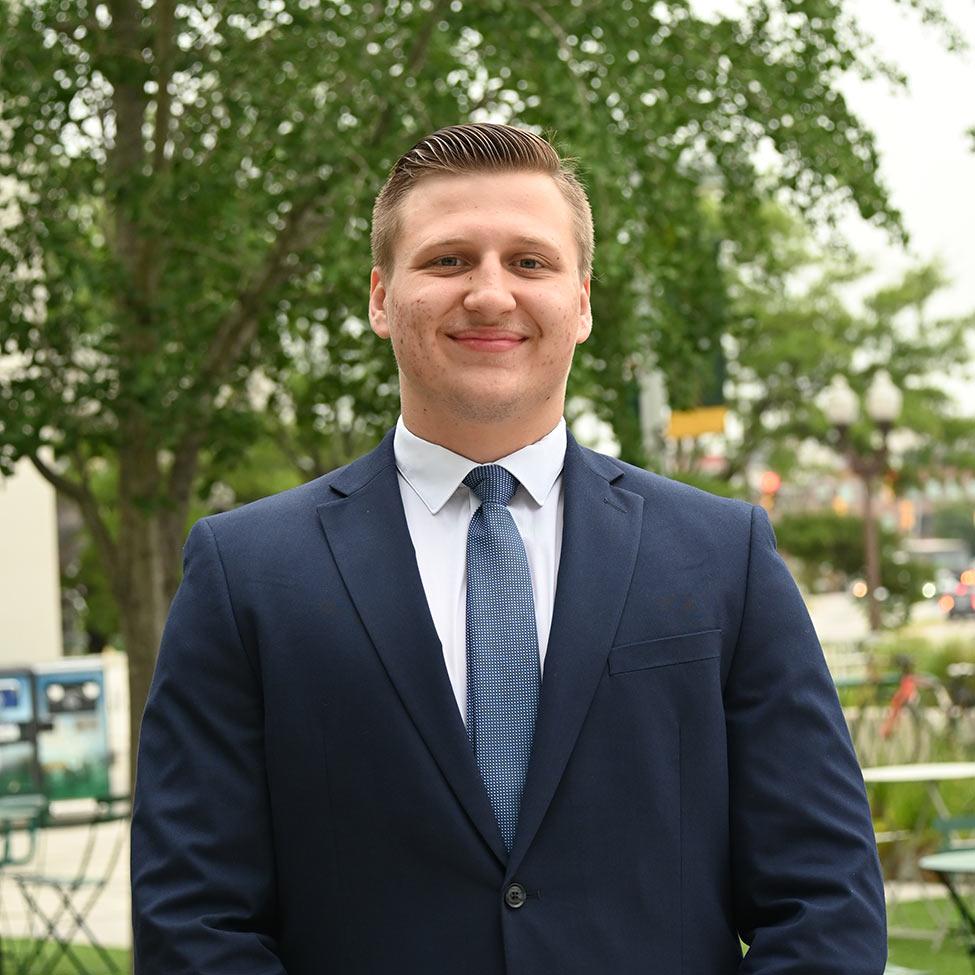
Class of 2028
Currently Studying: BBA in Public Accounting and MS in Financial Management
Member (Clubs): Beta Alpha Psi, Beta Gamma Sigma
Why did you choose Pace University and the Lubin School of Business?
I chose Pace University and the Lubin School of Business because of its proximity to the hustle and bustle of New York’s financial services industry. As a native New Yorker, I always wanted to stay in the city I was raised in, as it is the backbone of the world’s financial system. Pace University and the Lubin School of Business’s robust alumni network and strong connections to top firms in NYC attracted me to pursue my studies here.
How have clubs on campus helped enrich your student experience?
Clubs have been an integral part of my experience at Pace University, especially Beta Alpha Psi. Beta Alpha Psi provided me with opportunities I wouldn’t have had otherwise. I’ve had the privilege of attending countless events, meeting and learning from professionals, and taking part in community service activities. These events were a great way for me to broaden my knowledge of the financial services industry and form lasting connections. I recently switched to the five-year CPA track because of these experiences.
What has your experience been like leading Beta Alpha Psi? How has your involvement in the organization helped you grow professionally or person ally?
During my time in Beta Alpha Psi, I served as Treasurer and, this year, as President. As Treasurer, I managed the organization’s budget and helped organize an investment competition alongside the Undergraduate Finance Club. This year, as President, I’m leading chapter operations and initiatives. I’ve also had the opportunity to travel to Texas and Florida to attend Beta Alpha Psi conferences. These experiences have strengthened my leadership skills through collaboration, event planning, and representing our chapter on a national level. I’ve grown professionally through public speaking and engaging with industry professionals.
How have your internships or professional experiences shaped your career goals so far?
My internships have helped me gain hands-on accounting experience and apply my academic knowledge in real-world settings. This summer, I interned at Patomak Global Partners in Washington, D.C. This was a formative experience—not only did I build on my accounting skills, but I also explored our nation’s capital. I visited places like the U.S. Congress and made new connections. Currently, I’m interning at Robotti & Company in Midtown, where I’m continuing to grow my skills. These experiences have reinforced my goal of earning my CPA license and becoming a practicing CPA.
Lubin’s hands-on, real-world approach to business education has helped prepare me for success by providing applicable experience.
How has Lubin’s hands-on, real-world approach to business education helped prepare you for success?
Lubin’s hands-on, real-world approach to business education has helped prepare me for success by providing applicable experience. In my classes, I’ve expanded my knowledge of accounting through realistic projects. For example, in my introductory financial accounting class with Professor Goldstein, my team and I created financial statements and a marketing plan for a fictitious company. This project helped solidify my understanding of key concepts and set me up for future success.
What has been your favorite opportunity at Pace?
My favorite opportunity at Pace was participating in the Wall Street Workshop organized by Professor Ismailescu. This workshop introduced me to different areas of the financial services industry and deepened my understanding of it. I networked with professionals and visited Credit Agricole, an investment bank in Manhattan. This experience led to my participation in an investment banking boot camp at Houlihan Lokey, where I learned about the day-to-day work of investment bankers through practical simulations.
Do you have any advice for other Lubin students?
Your university experience is what you make of it. These are your most formative years, laying the foundation for the rest of your life—so be sure to take advantage of the opportunities presented to you. It’s important to stay disciplined and prioritize the things that will set you up for success. Lubin offers countless resources to help you thrive, but it all depends on how much effort you’re willing to put in.
What does #LubinLife mean to you?
#LubinLife means drive. It represents the discipline to keep pushing toward your goals and making the most of the opportunities around you. It’s not always going to be easy—and it’s not supposed to be. Professional and personal growth is like going to the gym: without hard work, you won’t see results. Being focused, working hard, and using that drive will help you build a strong foundation for the future.